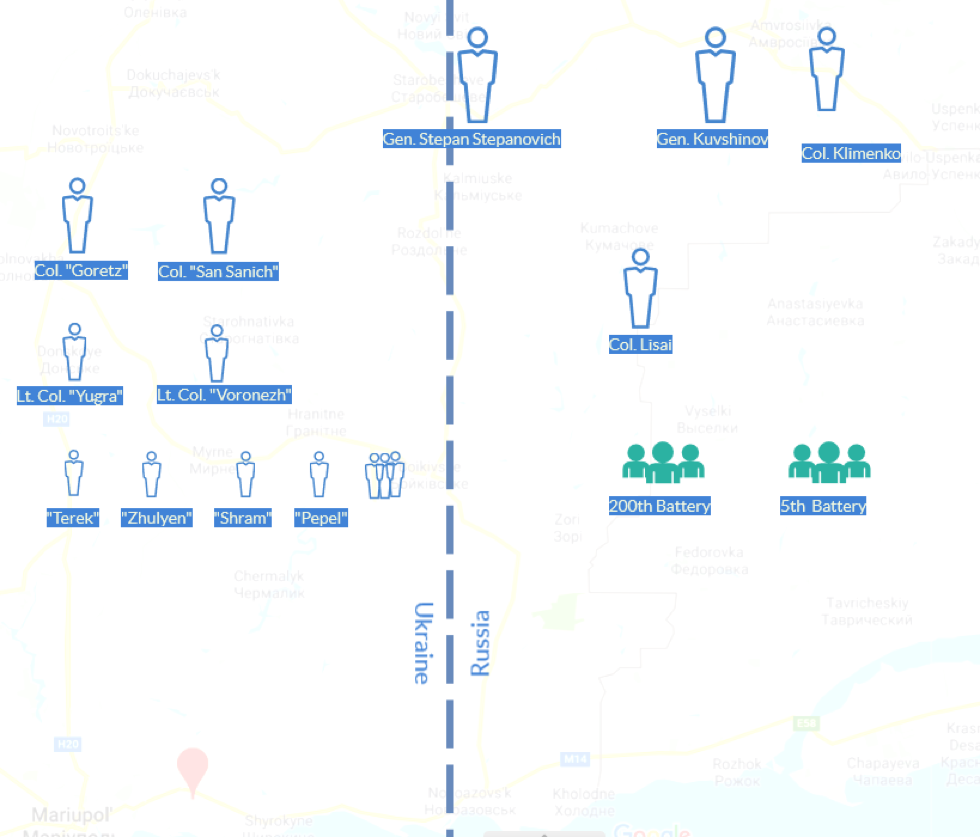Open-source investigation group Bellingcat on May 7 named a group of serving Russian army officers it says are directly responsible for the shelling attack on the city of Mariupol in southern Donetsk Oblast on Jan. 24, 2015.
The group says a full report on the investigation will be released soon.
In a post on Twitter linking to an initial report, Bellingcat investigator Aric Toler said investigators had managed to confirm that the attack on the city was made from territory under Russian control. More than 30 civilians were killed and more than a hundred people injured in the attack, in which dozens of Grad rockets rained down on a residential district.
Bellingcat said the two batteries of Grad multiple rocket launch systems used in the attack had been sent into Ukraine from Russia the day before.
Early in the morning on Jan. 24, 2015, the batteries were deployed near the village of Bezimenne, Bellingcat said. After they attacked the outskirts of the city, the artillery units returned to Russia.
Bellingcat investigators used evidence from satellite images, social network posts, and intercepts of phone calls of several identified individuals to establish the details of the attack, and the chain of command behind it. The group also analyzed evidence connected to the attack that was earlier submitted to the International Court of Justice in The Hague.
After analyzing the data, Bellingcat established that two Russian generals, Stepan Yaroshchuk and Dmitry Klimenko, had been involved in the process of selecting and assigning Russian artillery specialists to commanding roles in eastern Ukraine.

A scheme by the Bellingcat open-source investigative team shows Russian officers allegedly involved in an attack on Mariupol in 2015. (Bellingcat)
Among the serving Russian army officers who took part in organizing and carrying out the attack were Colonels Oleg Kuvshinov and Sergey Lisai, Alexander Muratov, Maksim Vlasov (call sign ‘Yugra’), Sergey Yurchenko (call sign ‘Voronezh’), Alexander Grunchev (call sign ‘Terek’), and Alexander Evtody (call sign ‘Pepel’).
The full version of the report will be published later this week, Bellingcat said.
